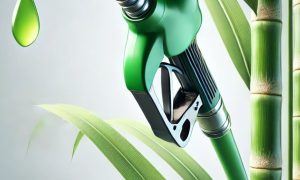State ethanol leader ‘optimistic’ about impact of tariffs

The ongoing trade war underscores agriculture’s dependence on global trade, but South Dakota ethanol leaders remain optimistic. Doug Berven, head of the South Dakota Ethanol Producers Association, says ethanol is vital to agriculture’s survival. He believes tariff talks could reopen markets like Brazil and expand into Japan and India, boosting U.S. biofuel exports and rural economies.
The ongoing trade war serves as a reminder of how important international trade is to the agriculture industry.
But one South Dakota business leader said he’s “optimistic” there’s an area that could benefit from tariff negotiations: the ethanol industry.
Though some speculated Canada would retaliate on the US by applying tariffs to ethanol, South Dakota’s top trading partner for the product, it now appears that’s not the case.
“Because it would be bad for Canada as well. They can’t meet their decarbonization goals and fuel goals without US ethanol. So, I don’t think that’s going to happen,” said Doug Berven, the Executive Director of the South Dakota Ethanol Producers Association.
He said though ethanol has many positives associated with it, there’s one that outweighs everything else to keep in mind amid tariff negotiations.
“Ethanol’s greatest benefit is its contribution to agriculture. Without any question. Without ethanol, agriculture is in crisis mode. Period. That’s all there is to it,” Berven said. “Trump knows that. And I don’t think he’s going to trigger anything that creates long-term damage to the biofuels industry which would literally cripple agriculture in this country and around the world.”
Berven said though it’s hard to predict what happens next, a lot of ethanol producers are optimistic.
“I think he is trying to do what he can do to strengthen rural America, agriculture, biofuels, domestic energy production for the long run, and he’s using tariffs to do that,” Berven said.
That includes opening previously closed doors.
“Brazil used to be our biggest trading partner, but they put a big tax on ethanol and we don’t sell any ethanol into Brazil anymore because of that,” Berven said. “And, so maybe Brazil reduces their tariffs on ethanol and helps open up a market for us. That would be a beneficial thing.”
The White House said Brazil imposes an 18% tariff on US ethanol, whereas the US has a 2.5% tariff on ethanol products. Brazil began to tariff import ethanol beginning in 2017. White House officials said due to this, the US imports nearly $150 million more in ethanol to Brazil than it exports to the country.
Brazil is a key competitor in the ethanol market. According to the Renewable Fuels Association, in 2023 the US (53%) and Brazil (28%) accounted for 81% of global ethanol production. The next closest entity was the European Union, which accounts for 5% of global production.
Berven said two other countries to keep an eye on as potential ethanol trading partners are India and Japan as they look at their fuel needs.
To Read more about Ethanol Industry & Bio Energy News, continue reading Agriinsite.com
Source : SDPB

















